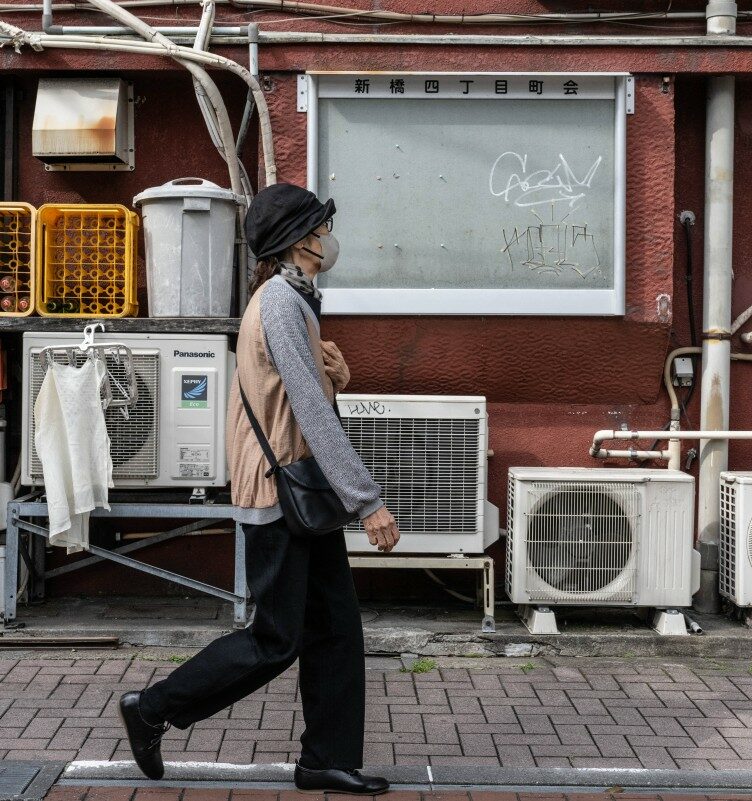WATCH your waistline.
More than 4 billion people, or 51 percent of the global population, will be overweight or obese by 2035 if current trends continue, according to the World Obesity Federation. Nearly 2 billion will have obesity.
This would be a significant increase from the 38 percent of the population overweight or obese in 2020.
Rates are rising among adolescents and in lower income countries, the group said in its World Obesity Atlas 2023.
“This year’s Atlas is a clear warning that by failing to address obesity today, we risk serious repercussions in the future,” said Louise Baur, president of the World Obesity Federation.
The economic impact of this, which includes healthcare costs and reduced productivity, is expected to reach $4.32 trillion annually by 2035 if prevention and treatment measures do not improve.
The report noted that this is comparable to the impact of COVID-19 in 2020, when most economies shrunk due to border closures and movement restrictions.
The World Health Organization defines overweight and obesity as abnormal or excessive fat accumulation that presents a health risk. The World Obesity Federation bases overweight and obesity on body mass index, which is a measure of body size based on a person’s height and weight.
Why it’s a concern
According to the WHO, obesity is a disease that affects the heart, liver, kidneys, joints, and reproductive system.
It can lead to type 2 diabetes, cardiovascular disease, hypertension and stroke, various forms of cancer, and mental health issues. People with obesity are also three times more likely to be hospitalized for COVID-19, it said.
SUGGESTED STORIES:
Heatwave swells Asia’s appetite for air-conditioning
HONG KONG, China: A record-breaking heatwave is broiling parts of.
DLSU’s DCAT 2024 results now available
ARE you green? De La Salle University has just released.
Beloved Onlypans in Poblacion burns down
LAST Friday, May 3rd, popular Mexican restaurant Onlypans announced on.
PH to get heavier
The Philippines is one of the countries expected to contribute to the population of the obese by 2035.
The World Obesity Federation said the Philippines is poorly prepared to deal with obesity, with a 119/183 ranking. The ranking is based on a country’s health system response to non-communicable diseases.
According to the report, 17 percent of adults in the Philippines are projected to have obesity by 2035.
The country’s annual increase in adult obesity from 2020 to 2035 is 4.6 percent. The annual increase in child obesity in the same period is 6.9 percent. Both are considered very high.
The impact of overweight on the national GDP by 2035 is a 2.4 percent reduction. This is also considered very high.
Global outlook
The World Obesity Federation said more children and adolescents are at risk of being obese by 2035, projecting an increase from 10 percent to 20 percent of the world’s boys from 2020 to 2035. For girls, the rise will be from 8 percent to 18 percent.
These will be equivalent to 208 million boys and 175 million girls with obesity by 2035.
The proportion of adult men with obesity is expected to increase from 14 percent to 23 percent in the same period, while for women it will be from 18 percent to 27 percent.
This means there may be 690 million men and 842 million women with obesity by 2035.
What to do
The World Obesity Federation said countries should have comprehensive national action plans to act on the World Health Organization’s recommendations to prevent and manage obesity.
These include improving the food environment and providing better access to healthy food, providing spaces for physical activity, and providing care through health promotion, disease prevention, diagnosis, treatment, and management of obesity.
Johanna Ralston, CEO of the World Obesity Foundation, called for systemic action to address obesity and said the group was not blaming individuals.
“It is a result of high-level failures to provide the environmental, healthcare, food, and support systems that we all need to live happy, healthy lives. Addressing these issues will be valuable in so many ways, to billions of people,” Ralston said.












